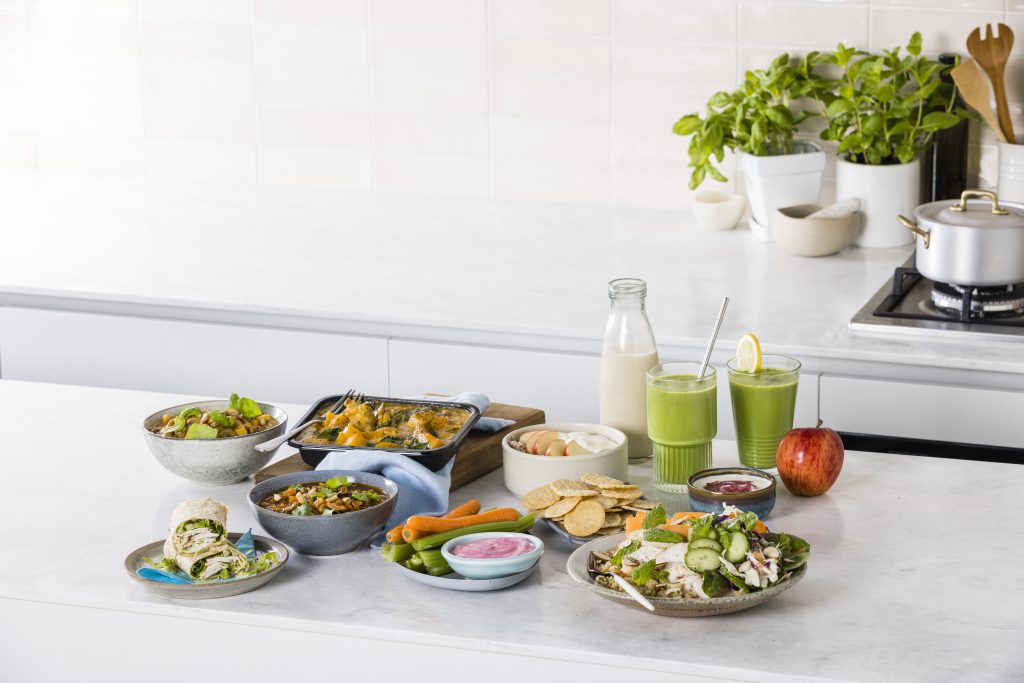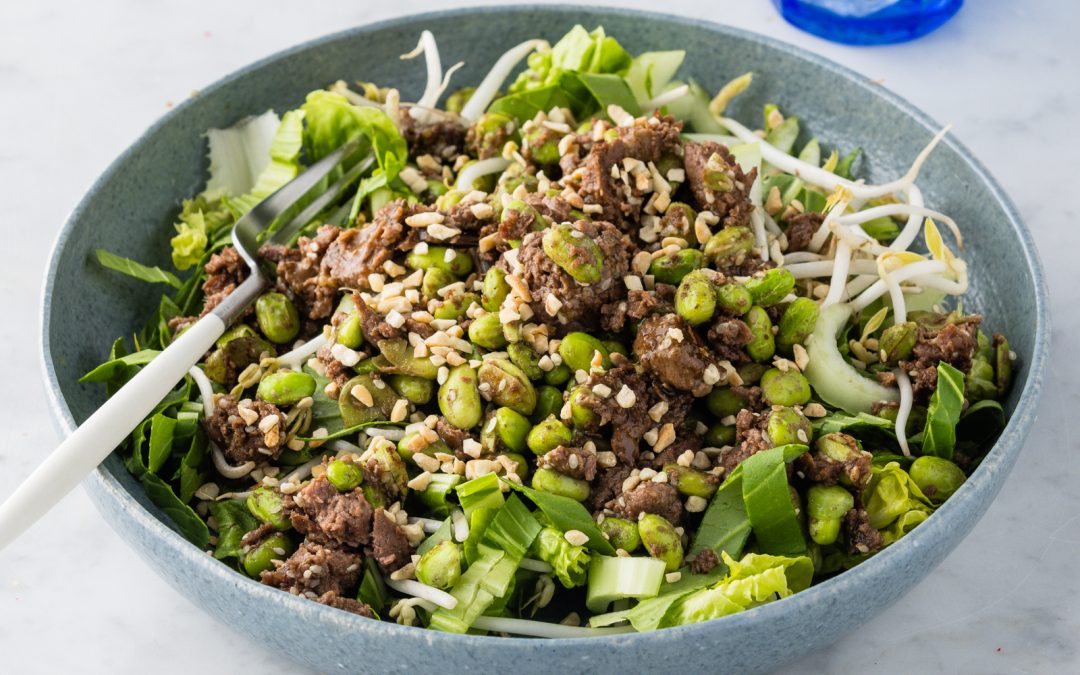After weeks of building healthier routines, you might be wondering – what now? How do you maintain healthy habits once the initial motivation slows down or life gets busier?
The answer lies in creating a way of eating and living that feels realistic, flexible, and enjoyable. Long-term health isn’t about strict rules or all-or-nothing thinking. It’s about finding balance and continuing the small, sustainable actions that make you feel good.

Saskia, our talented Chef and Food Stylist at Fresh Start, shares her story and five practical tips to help you maintain a positive relationship with food and build healthy habits that last.
Saskia’s Story
After the birth of her second child, Saskia wanted to lose weight, feel stronger, and regain her energy. She initially tried a restrictive diet that gave quick results but wasn’t sustainable in the long run.
Her perspective shifted when she began focusing on nourishment instead of restriction. By prioritising whole foods and nutrient-density, she found her mood lifted, she lost weight and her health goals became easier to maintain.
“One of the most enlightening things I found was how nourishing my body significantly impacted my mood and mental health. Focusing on the quality of what I was eating and how it made me feel in my day-to-day life made reaching and sustaining my goals that much easier,” Saskia says.
“And that is when I started my forever ‘diet’… I felt empowered during the journey, not deprived.”
Saskia’s story is a reminder that lasting change isn’t about willpower or rigid rules. It’s about learning what works for your body, staying flexible, and focusing on how food makes you feel.

Five tips for maintaining your healthy habits long term:
1) Give yourself time
Real change doesn’t happen overnight. Be patient and trust the process. Small, consistent steps are far more effective than drastic changes that are difficult to sustain.
Focus on progress, not perfection – aim to make slightly better choices each day, like cooking one extra meal at home or adding more colour to your plate. Over time, these small actions become automatic.
2) Plan for success
Meal planning is a simple but powerful tool for staying on track, especially during busy or stressful weeks. Taking time to plan your meals, make a grocery list, or prepare a few ingredients in advance makes it easier to make nourishing choices when life gets hectic.
Having nutritious options on hand helps you stay consistent. If you’re short on time, lean on healthy convenience foods or Fresh Start’s ready-made meals to take the pressure off.
3) Stay flexible
Healthy eating doesn’t have to be all or nothing. One “less healthy” meal won’t undo your progress. Food is also social and enjoyable, so allow yourself to enjoy it without guilt.
Focus on long-term consistency rather than daily perfection. The more flexibility you give yourself, the easier it is to maintain balance and build habits that last. Remember, what balance looks like will differ for everyone.
4) Focus on solutions, not setbacks
Life will always include busy weeks, unexpected events, and moments when motivation dips – and that’s okay. Instead of seeing these as failures, look at them as opportunities to adjust. Identify the barriers that make it harder to maintain your habits and find practical ways around them.
If you’ve fallen out of routine, ask yourself: What’s one small thing I can do today to feel more balanced? Maybe that’s drinking more water, taking a short walk, or planning your next meal.
Start with one or two habits, such as eating breakfast daily or adding an extra serve of vegetables. Once those become routine, build from there. Over time, these small, repeatable actions lead to lasting change.
5) Eat to nourish your body
Balanced eating isn’t about restriction – it’s about fuelling your body with foods that satisfy and support you (1).
Focus on whole foods, including a variety of lean proteins, wholegrains, healthy fats, fruits, and vegetables (2). Keeping your meals balanced and satisfying can reduce the urge to overeat later and help stabilise energy levels throughout the day.
Rather than cutting foods out, focus on what you can add in – more colour, more plants, and more protein.
The bottom line
Maintaining healthy habits is about balance and building a lifestyle you enjoy. Plan ahead, stay flexible, and continue to nourish your body with food that makes you feel good.
When you view health as a lifelong journey instead of a destination, the results – and your mindset – will last.

References:
(1) Tremblay A, Bellisle F. Nutrients, satiety, and control of energy intake. Appl Physiol Nutr Metab. 2015;40(10):971–979. doi:10.1139/apnm-2014-0549.
(2) Hall KD, Ayuketah A, Brychta R, et al. Ultra-processed diets cause excess calorie intake and weight gain: an inpatient randomized controlled trial of ad libitum food intake. Cell Metab. 2019;30(1):67–77.e3. doi:10.1016/j.cmet.2019.05.008.


